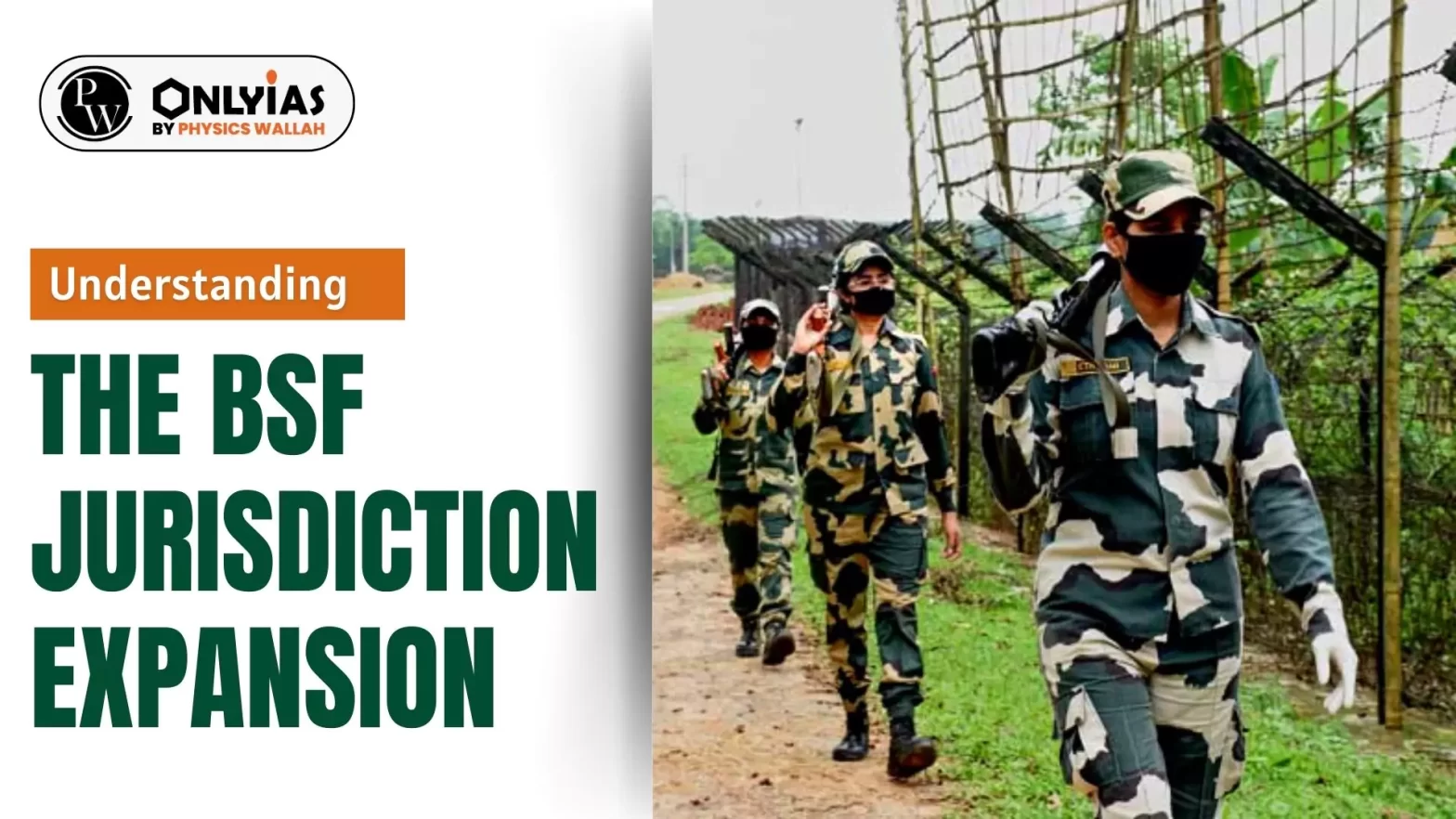Context:
This editorial is based on the news “Why Punjab govt moved Supreme Court against the expansion of BSF jurisdiction” which was published in The Indian Express. The Supreme Court is set to hear the dispute over the expansion of the Border Security Force jurisdiction in Punjab.
About Border Security Force (BSF)
- Establishment: Border Security Force (BSF) was formed in 1968 and stands as India’s first line of defense, securing the nation’s land borders against external threats.
Powers of the Border Security Force Under Various Acts
- The BSF’s expanded jurisdiction hands it the authority to execute actions permitted under specific acts, including the CrPC, the Passports Act, and more, across a broader territorial range.
- Search & Arrest: Under the Criminal Procedure Code, the BSF can conduct searches and arrests, foundational in stopping illicit cross-border activities.
- Document Inspection: The Passports Act grants the power to inspect travel documents, crucial in managing and monitoring cross-border travel
- Drug Interdiction: The NDPS Act empowers the BSF to hinder narcotics smuggling, a critical component of transnational crime.
Restrictions on BSF Jurisdiction
- While the jurisdiction expansion empowers the BSF under certain acts, limitations persist under the NDPS Act and Customs Act:
- 15 km Jurisdiction: Within this zone, it has comprehensive powers to combat smuggling and protect India’s economic interests through enforcement of the Customs Act.
- 50 km Zone: In this expanded buffer zone, the BSF’s mandate primarily covers the exercise of powers under the CrPC and inspection of travel documents.
- Operational Impact: The separation of powers based on differing jurisdiction zones has operational implications that influence the BSF’s strategic deployment and action plans.
Need for the Expansion of the role of Border Security Force
- To enhance the security by shifting the operational reach from 15 km to 50 km.
- BSF can implement a wider operational strategy to combat border-related challenges.
- It allows for a unified approach to border security and overall national security architectures.
Punjab Government’s Legal Stance
- The government contends that it infringes upon state autonomy in matters of policing and law enforcement, as law and order is a State Subject.
- Constitutional Concern: Disrupting the delicate balance of power between Union and States.
- Lack of Consultation: No prior consultation was taken, challenging cooperative federalism.
- Impact on Policing: Such a move usurps authority from state policing agencies.
Central Government’s Defence
- It said that the action was aiming to assure national security in the face of evolving threats.
- Tech-Based Threats: Advancing drone technologies pose a new category of cross-border threats necessitating a substantial response and increased operational domain for the BSF.
- Smuggling Dynamics: Smuggling, particularly of cattle, is a prevalent issue transpiring within a deeper belt along the border, requiring BSF intervention.
- Uniformity Principle: Standardizing the BSF jurisdiction across border states is intended to foster a cohesive border security policy.
Supreme Court’s Examination Criteria
- The court will decide through an original suit under Article 131 of the Constitution.
- Arbitrariness: Whether the decision was impetuous or grounded in substantial motives.
- Encroachment: Assessment on state powers over policing and public order.
- Border Area: Factors that merit consideration when determining BSF jurisdiction in border areas.
- Uniformity: The relevance of treating all states uniformly on matters of jurisdiction.
Conclusion
The outcome of this legal contention holds the potential to redefine the contours of the Indian federal structure, particularly in the realm of border security management and center- state dynamics. The SC decision will act as a precedent in delineating the boundaries and have far-reaching consequences on future policies pertaining to national security and law enforcement.
![]() 25 Jan 2024
25 Jan 2024

